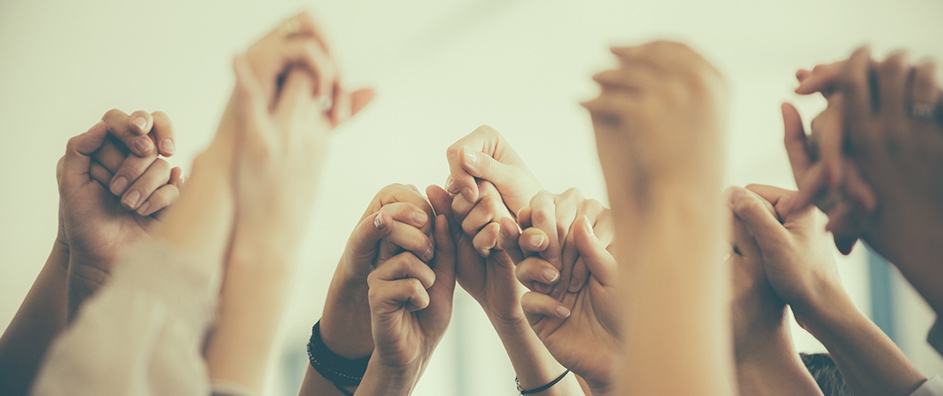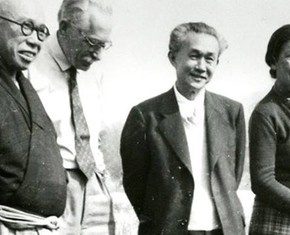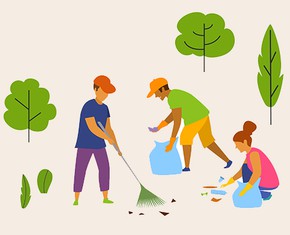The views expressed in our content reflect individual perspectives and do not represent the authoritative views of the Baha'i Faith.
Every day for the past five years I’ve read my local newspaper’s Police Blotter, the daily report of the area’s crimes.
Most of them wouldn’t even rate a brief mention in any urban area—petty thefts, bar fights where no one gets really hurt, people reporting noisy parties, minor family and neighbor disputes. But here’s my analysis of my town’s crimes: at least 80% of them, and probably 90%, are alcohol- or drug-related. That goes for the infractions, the misdemeanors and the felonies.
We tend to think of domestic abuse, assaults and burglaries as acts of angry or belligerent people with criminal intent, but the truth is a very different reality—they’re most often the acts of high or drunk people whose substance abuse has impaired their judgment. This truth applies in every small town and every big city, too, and it applies at every criminal level.
When I lived in Los Angeles, I knew the Sheriff of LA County, the largest sheriff’s department in the world with its 18,000 employees. As part of a federally-funded study, the Sheriff agreed one year to test all arrestees for drug and alcohol impairment. At the end of that year, he discovered, to his great surprise, that the vast majority—79%–of everyone his officers arrested were legally intoxicated or drug-impaired:
Data collected from male arrestees in 1992 in 24 cities showed that the percentage testing positive for any drug ranged from 42% to 79% across the cities. Positive drug tests for females arrested ranged from 38% to 85%. – U.S. Department of Justice, Drug-Related Crime
I asked the Sheriff what his job would be like without drugs and alcohol. “Non-existent,” he told me.
Think about that for a minute, and contemplate the toll, the pain and the expense to society of all those crimes—then try to imagine a society with drastically reduced levels of drug- or alcohol-related crime.
The Baha’i teachings envision exactly that kind of future society:
O ye, God’s loved ones! Experience hath shown how greatly the renouncing of smoking, of intoxicating drink, and of opium, conduceth to health and vigour, to the expansion and keenness of the mind and to bodily strength. There is today a people who strictly avoid tobacco, intoxicating liquor and opium. This people is far and away superior to the others, for strength and physical courage, for health, beauty and comeliness. A single one of their men can stand up to ten men of another tribe. This hath proved true of the entire people: that is, member for member, each individual of this community is in every respect superior to the individuals of other communities.
Make ye then a mighty effort, that the purity and sanctity which, above all else, are cherished by Abdu’l-Baha, shall distinguish the people of Baha; that in every kind of excellence the people of God shall surpass all other human beings; that both outwardly and inwardly they shall prove superior to the rest; that for purity, immaculacy, refinement, and the preservation of health, they shall be leaders in the vanguard of those who know. And that by their freedom from enslavement, their knowledge, their self-control, they shall be first among the pure, the free and the wise. – Abdu’l-Baha, Selections from the Writings of Abdu’l-Baha, p. 148.
It’s possible, when Abdu’l-Baha mentions “a people who strictly avoid tobacco, intoxicating liquor and opium,” that he was praising the Punjabi Sikhs in India, who use no drugs or alcohol:
Those who do not use intoxicants are true; they dwell in the Court of the Lord. – Gurbani, in the Sri Guru Granth Sahib, the Sikh holy book.
So how do we build an addiction-free society? We certainly can’t accomplish it with legal means—all kinds of attempts at prohibition have repeatedly failed. On the other side of that equation, societies that have legalized or decriminalized the use of drugs and alcohol have not eliminated or even substantially reduced their crime rates.
We can’t accomplish it with a “war on drugs,” either. That strategy focuses on reducing the supply of illegal drugs using interdiction, eradication and crop diversification—but even though we’ve spent billions, it hasn’t been shown to permanently reduce the amount of available drugs in any given society. In fact, even when supply-side strategies have managed to temporarily reduce the flow of drugs in some places, increasing scarcity makes the prices of the remaining drugs rise—which incentivizes even more drug smuggling and production by making it more profitable.
That leaves two potential paths open to us: preventative education and religion.
With effective early preventative education in schools, children can learn the facts about drug and alcohol addiction, and learn how to avoid it. Studies have shown that this kind of prevention strategy can work by lowering drug and alcohol use, but that it doesn’t dramatically reduce or eliminate addiction.
Religion, as the Sikhs and the Baha’is and several other faith groups have demonstrated in their communities around the world, actually offers humanity the most promising route to a drug-free future and an addiction-free society. Because faith provides us with an internal, self-regulating, spiritual way to avoid intoxicants, those communities have proven themselves as largely free of the consequences of addiction and the crime and violence that inevitably accompany it.
You May Also Like
Comments

















https://youtu.be/Owjm9AKn4bg
Video in in the above link. Drugs should be neutrally treated as just giving people the facts. Drugs should neither be glamorized/encouraged or demonized/prohibited, but presented neutrally with people must decide on the neutrally given info. Drugs, how they are administered, their effects, withdrawal effects, tolerance rates, addiction rates, long term effects, long term withdrawal effects, interactions, and overdose are all relevant to an informed decision. A moralistic stance that don't do drugs since the addiction rate is more than zero percent ...isn't this neutral informed decision route.
What percentages of the users of any drugs ever become addicts? You use drug-free and addiction-free interchangeably despite the literature making a clear difference between use and addiction. Take for instance ...the CNN study of good driver pot smokers.